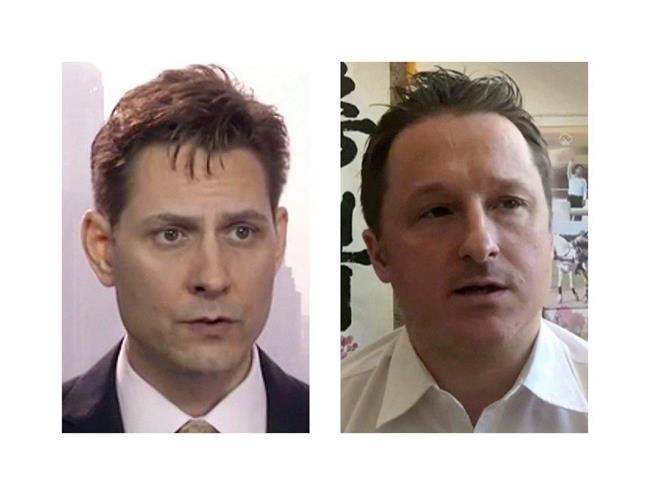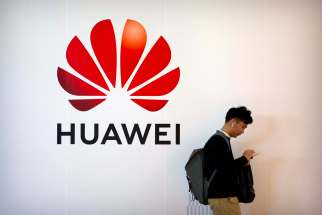Time to hit ‘pause’ on 5G commitments
Read this article for free:
or
Already have an account? Log in here »
To continue reading, please subscribe:
Monthly Digital Subscription
$0 for the first 4 weeks*
- Enjoy unlimited reading on winnipegfreepress.com
- Read the E-Edition, our digital replica newspaper
- Access News Break, our award-winning app
- Play interactive puzzles
*No charge for 4 weeks then price increases to the regular rate of $19.00 plus GST every four weeks. Offer available to new and qualified returning subscribers only. Cancel any time.
Monthly Digital Subscription
$4.75/week*
- Enjoy unlimited reading on winnipegfreepress.com
- Read the E-Edition, our digital replica newspaper
- Access News Break, our award-winning app
- Play interactive puzzles
*Billed as $19 plus GST every four weeks. Cancel any time.
To continue reading, please subscribe:
Add Free Press access to your Brandon Sun subscription for only an additional
$1 for the first 4 weeks*
*Your next subscription payment will increase by $1.00 and you will be charged $16.99 plus GST for four weeks. After four weeks, your payment will increase to $23.99 plus GST every four weeks.
Read unlimited articles for free today:
or
Already have an account? Log in here »
Hey there, time traveller!
This article was published 18/02/2020 (2121 days ago), so information in it may no longer be current.
Telus Communications, a Vancouver-based company, announced last week it will start building its fifth-generation (5G) communications network this year using equipment supplied by the Chinese manufacturer Huawei. The announcement presents a challenge to Prime Minister Justin Trudeau and his government, who are still thinking about whether Huawei equipment should be allowed in Canada’s next-generation networks.
Telus and other telecommunications companies around the world have been using Huawei equipment for many years. The United States government, however, wants to draw a line at 5G networks, which will carry much greater volumes of electronic data.
The U.S. warns that Huawei equipment may allow the Chinese government to spy on network users and harvest information passing through those networks. It has threatened to stop sharing U.S. intelligence with countries that use Huawei equipment.
U.S. President Donald Trump, though he often quarrels publicly with his own intelligence agencies and belittles his military forces, agrees with them on this point. Nancy Pelosi, head of the opposition Democrats and a severe critic of Mr. Trump, added her voice to the anti-Huawei chorus last week when she spoke at an international security forum in Munich.
Japan, Australia, New Zealand and Taiwan have joined the U.S. in banning Huawei from their 5G networks. British Prime Minister Boris Johnson decided in January to allow Huawei equipment in 35 per cent of Britain’s 5G network, but not in sensitive locations such as nuclear power plants and military bases. British intelligence agencies believed they could recognize features in a Huawei device that could enable Chinese espionage.
The U.S. warnings should not be disregarded. U.S. prosecutors have repeatedly denounced, in very precise terms, Chinese government cyber-attacks. In December, for instance, the U.S. justice department laid charges against two named individuals belonging to the Advanced Persistent Threat (APT10) group affiliated with China’s main intelligence agency. They were charged with hacking into computer systems of defence technology companies, communication service providers and government agencies in the U.S. and other countries from 2006 to 2018.
These cases have never come to court because the accused people stay in China. The U.S. authorities, however, clearly think cyber-espionage is happening currently and they think the Chinese government is behind much of it.
Two Canadians, Michael Spavor and Michael Kovrig, have been in prison in China for 14 months. They are held as hostages to compel Canada to release Meng Wanzhou, a Huawei executive accused of fraud by U.S. authorities. Ms. Meng is resisting extradition to the U.S. and meanwhile lives under court-imposed restrictions in her Vancouver house.

Canada knows from that experience that China’s government is ruthless and brutal in its support of Huawei. In these circumstances, it is not up to Telus or any other telecom company to decide whether this country should involve itself more deeply with Huawei. It is up to the government, and Telus will have to comply once the government decides the question.
The Telus announcement last week should therefore be taken as an aspirational statement rather than a fait accompli. Telus should not commit to Huawei 5G equipment until the government decides how much risk of Chinese espionage this country can accept. Meanwhile, Telus should keep in touch with other suppliers — Ericsson, Samsung, Nokia and the like — and have Plan B ready for implementation.














